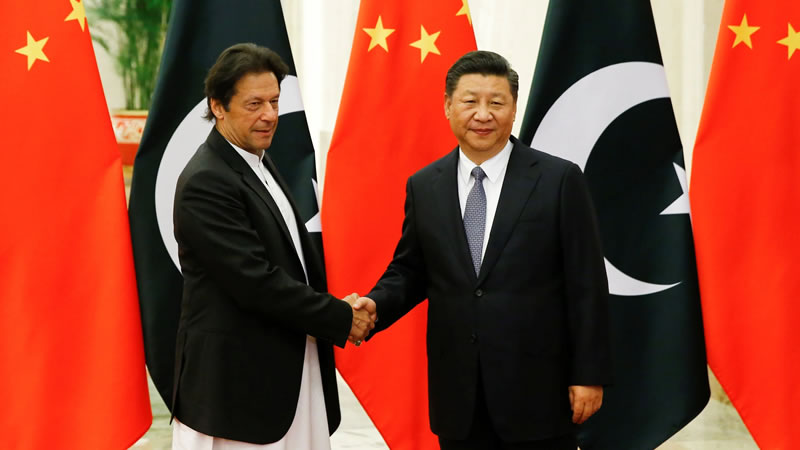 The US administration would turn a partially blind eye to the shelter given by Pakistan to the Afghan Taleban leadership; in return, Pakistan would genuinely cooperate against international terrorist plots directed at the American homeland. The location and death of Osama bin Laden in the vicinity of a Pakistan military academy calls that bargain, and the whole future of the American-Pakistani alliance, into question. In private, Pakistani officials have told me that their country’s overall strategy with regard to extremism has been the following: They admit a measure of shelter (though not active support) to the Afghan Taleban, but say that the Taleban’s real strength lies in mass support among the Pashtuns of Afghanistan and Pakistan. They say the US should seek a peace settlement with the Afghan Taleban leadership, and that Pakistan would like to help achieve such a settlement. By contrast, they declare an unconditional struggle against both homegrown rebels, who fight Pakistan itself, and Pakistanis and foreigners plotting to attack the West.
The US administration would turn a partially blind eye to the shelter given by Pakistan to the Afghan Taleban leadership; in return, Pakistan would genuinely cooperate against international terrorist plots directed at the American homeland. The location and death of Osama bin Laden in the vicinity of a Pakistan military academy calls that bargain, and the whole future of the American-Pakistani alliance, into question. In private, Pakistani officials have told me that their country’s overall strategy with regard to extremism has been the following: They admit a measure of shelter (though not active support) to the Afghan Taleban, but say that the Taleban’s real strength lies in mass support among the Pashtuns of Afghanistan and Pakistan. They say the US should seek a peace settlement with the Afghan Taleban leadership, and that Pakistan would like to help achieve such a settlement. By contrast, they declare an unconditional struggle against both homegrown rebels, who fight Pakistan itself, and Pakistanis and foreigners plotting to attack the West.
These officials say that the Pakistani state and Army are now restraining Lashkar-e-Taiba (LeT) and other groups from future violence. However, this means that the state has to maintain contacts with these groups and refrain from cracking down on them, despite demands from India and the West. In addition, Pakistani officers say — and here I am afraid that they are right — the popularity of LeT in Pakistani society practically guarantees that cases against its members are dismissed by the courts. The only available measures against LeT are extrajudicial, which is dangerous considering the movement’s widespread acceptance. The officials also point out that the sincerity and toughness of the state’s anti-terror fight is shown in the fact that more than 3,800 soldiers and policemen — including more than 80 intelligence officers — have died battling militants since 2001.
Pakistan’s strategy is not an irrational one, and it could still achieve the key US concern of helping prevent terrorist attacks on the West — which is why our soldiers are supposed to be in Afghanistan in the first place. If we fail to build up the Afghan state and Army to the point where they can defeat the Afghan Taleban — a possibility that now seems all too likely — then we will either have to do a deal with the Taleban or abandon Afghanistan to chaos. In either scenario, Pakistan will be a central player. Both approaches absolutely require that we are able to trust Pakistan, and its Army and intelligence services, when it comes to the fight against international terrorism. But can we trust them after this news about Bin Laden?
There’s still some chance that Pakistani intelligence performed better than now appears. The official Pakistani line is that it failed to spot Bin Laden in Abbottabad due to incompetence. If this is true, the incompetence was monstrous. It means that Pakistani intelligence failed to protect the Army itself. If Pakistani intelligence failed to identify and search this house as a possible launching pad for terrorist attacks in Abbottabad, then this can only be called criminally negligent.
It is essential that Americans are reassured that the Pakistani state is doing everything in its power to prevent international terrorism. Otherwise, if another attack ever succeeds, the US will respond with vengeful fury directed at Pakistan and its people. On balance, though, it seems probable that some elements in Pakistani intelligence did know about bin Laden’s location and didn’t inform the US, perhaps because they hoped to use him as a bargaining chip during some future crisis in relations with Washington. If this is indeed the opinion of the US intelligence community, then the Pakistani military must be made to suffer the consequences, and must be warned of still worse consequences to come if Pakistan does not cooperate fully against international terrorism in the future.
The US should insist on more rapid progress in creating an effective counter-terrorism agency to coordinate Pakistan’s feuding intelligence services. If Pakistan fails to comply, US military aid should be sharply reduced. However, absent a complete breakdown in relations between the two countries, economic aid from the US and IMF should be left alone, since the US has no interest in further impoverishing and radicalising ordinary Pakistanis. With a wary eye on Britain’s large Pakistani minority, Prime Minister David Cameron said that Pakistan had serious questions to answer about the Bin Laden case. However, he also emphasised the inescapable need for continued cooperation with Pakistan. This is true — but both the British and American publics will need assurance that from now on, the cooperation will be much more on our terms. – Khaleejtimes












